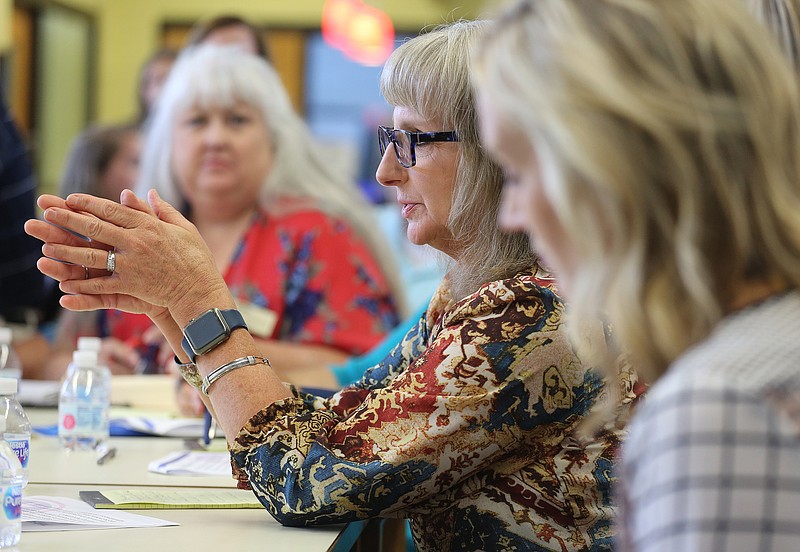The problems with Tennessee's oft-plagued TNReady assessment tests are not only that they have snarled examination weeks, inhibited student measurement and given the state an unclear picture of its educational progress. But they also have engendered the notion that testing, in itself, should be done away with.
That's a thought that, unfortunately, some educators and some politicians have helped foster.
We hope a successful administration of tests during the 2018-2019 school year, and changes the state plans to put in place, will quell the notion that academic assessments are unneeded and unhelpful.
Few students ever clamor to take assessment tests because they're tedious, time consuming (about 2 percent of the school year) and, frankly, they expose what students don't know. Nobody wants to know how much they don't know, but that's how students, teachers, administrators, school boards, and state and national education leaders determine if the goals of a specific educational cohort are being met.
In other words, are they learning what they are supposed to be learning? Are some learning and some not, and is that more evident in a particular demographic? Is there a way to impart the information in a better way?
The results also help determine decisions about, among other things, curriculum, instructional needs, grades, growth, application, placement, advancement and funding. Taking the tests also prepares students for a variety of examinations that will come their way as adults.
Parents worry about their child being judged solely by scores on a state assessment test, and teachers worry about their effectiveness being determined by their students' scores on those tests.
We would never belittle such concerns, but we believe neither have to worry unduly. Assessments tests are only one measure by which both should be judged.
Students, after all, must learn to think critically, analyze situations and make inferences in addition to showing a gradual maturity in getting along with their fellow students and in comporting themselves reasonably. Teachers must learn effective classroom and time management and how to be interesting, efficient and cognizant of various learning styles while keeping up with a massive amount of paperwork.
Neither has an easy job.
Recognizing that and the toll several years of TNReady test snafus have taken, Tennessee Gov. Bill Haslam and state Education Commissioner Candice McQueen conducted a listening tour. They couldn't unglitch the problems of previous tests, but they wanted to hear directly from teachers how to help, what could be changed in the administration of the tests and how the reporting of results could be improved.
To say the least, they got an earful.
The action steps being taken from the listening tour, some of which already are in place, concern both the current school year - halfway through which Haslam and, perhaps, McQueen will leave office - and the 2019-2020 school year, over which a new governor and, perhaps, a new education commissioner will preside.
The testing vendor, because of timing, is unlikely to change this year, but administration officials say teachers nevertheless will have earlier access to test distribution documents, more clarity and consistency in those documents, less paperwork to manage, fewer assessment test sub-parts and a more "responsive" help desk.
In addition, although the tests are more than five months off, the Department of Education this week has conducted a successful verification of the test platform with the participation of an estimated 50,000 students.
For the next school year, when a new vendor may be chosen through a request for proposal process, administration officials say schools and teachers can look forward to greater access to technology, better preparation methods for teachers and students, "smarter delivery" of assessments based on grade levels, and faster delivery of results to teachers and parents (including potential online delivery).
As smart as it was to conduct the listening tour, and to implement the changes suggested in that tour, Haslam, McQueen and gubernatorial candidates Republican Bill Lee or Democrat Karl Dean can't guarantee flawless testing execution next spring.
But what all concerned should do is help alleviate the thoughts of those who believe eschewing assessment tests altogether is a better answer than putting up with the headaches and false starts we have had in the last several years.
Throwing up our hands and saying it can't be done is never something Americans and Tennesseans have done, and we don't believe this is a good time to start.
